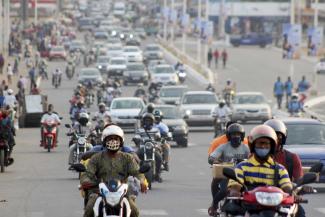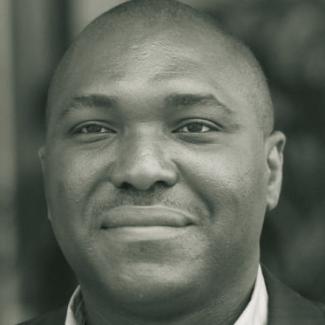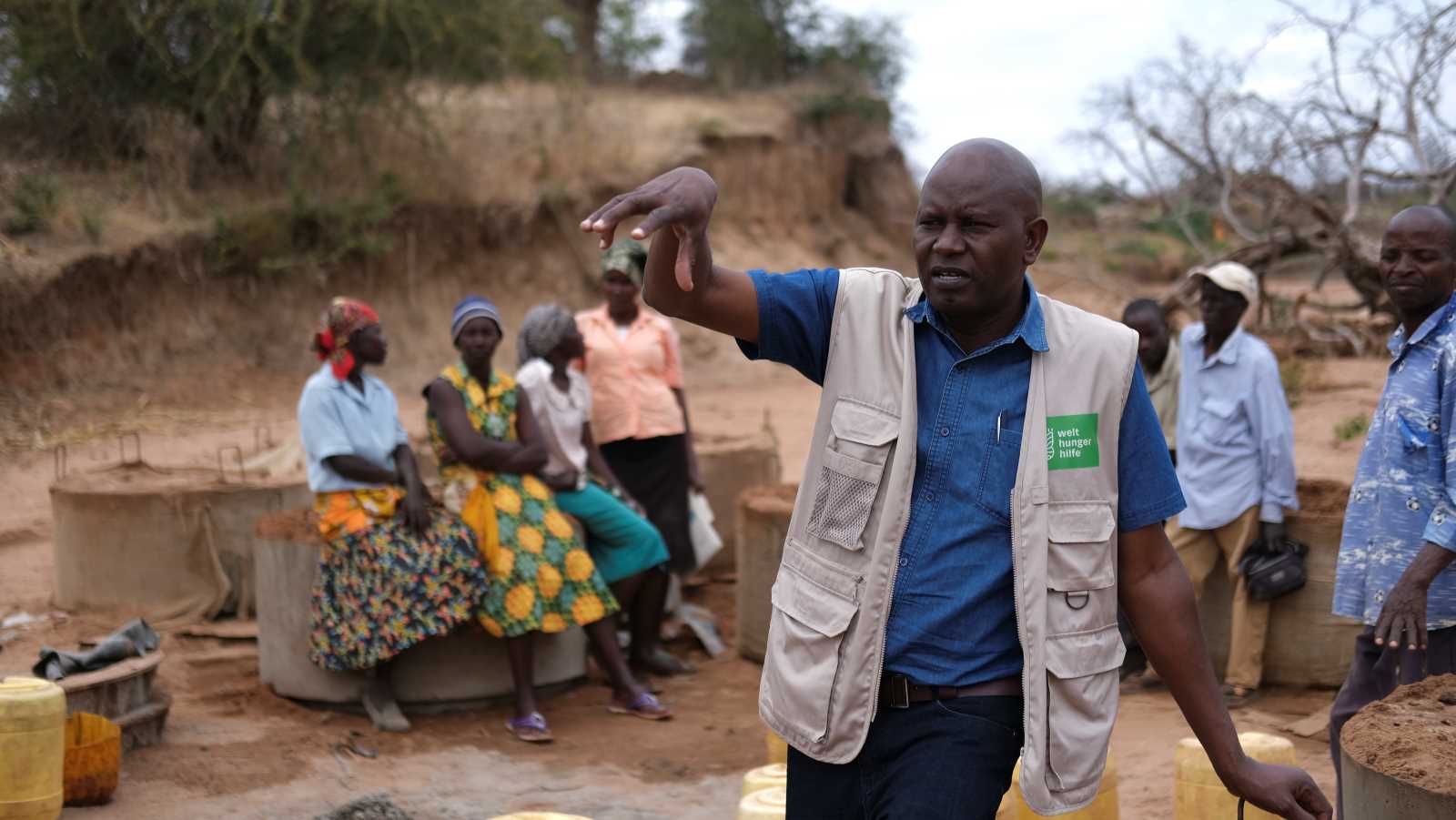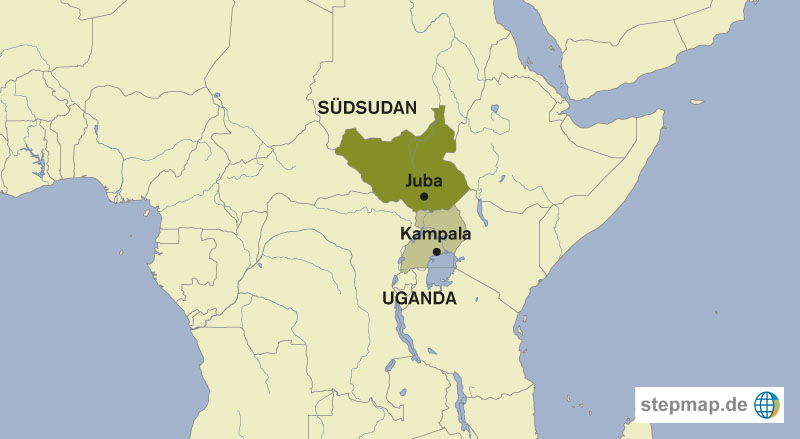Togo
Solidarity helps to escape pandemic

The Covid-19 pandemic hit people in Togo particularly hard, even though statistics show that the death toll forecast for the African continent never materialised. The government’s crisis management turned out to be the greatest challenge, not the virus.
From March 2020 to July 2022, a mere 282 deaths were reported in Togo. The nation of 8 million people had 38,410 cases of infection. Figures of this kind should be considered with a certain caution, since data collection can be quite difficult in Africa. Nonetheless, these numbers explain why Togo’s people are frustrated with the government’s approach to the pandemic.
At first, fear of the virus was great. However, people soon resented the stringent measures imposed to control the spread of the disease. Non-violent resistance followed. It is still evident, for example, when people refuse to be vaccinated (on vaccination campaigns in Africa, see Benjamin M. Kagina on www.dandc.eu).
Cash-strapped health care
Before Coronavirus, doctors had enjoyed great esteem in Togo, but the pandemic has dented people’s trust in health-care staff. Access to medical facilities had been poor previously. In 2018, the digital newspaper Republicoftogo reported that the nation had 139 general practitioners and 295 specialists. In other words, there was one doctor per 16,700 people. Fewer than 40,000 people were working in hospitals and care. Less than 10 % of Togo’s people enjoy the privilege of getting treatment in either public or private health facilities. They are the better-off and government officers.
Indeed, many people must rely on traditional healers or self-medicate with cures sold on roadsides (see Ben Ezeamalu on www.dandc.eu). Patients only go to emergency rooms once their illness has progressed considerably. Many perish for this reason. Science-based medicine only tends to be available in urban settings. The 80 % who live in rural areas hardly get professional health care.
Health care must do a lot of catching up
Things used to be different. After Togo’s independence in 1960, the government attempted to create a broad-based health-care system with facilities close to the people. Such efforts, however, ended in the 1980s in the course of the austerity imposed by multilateral structural-adjustment programmes. The crisis that led to democratisation in 1990 did not help either. There is a lot of catching up to do, after the country missed adequate investments in health-care investments for a quarter-century.
In the first decade of the new millennium, health-care staff responded with strikes to their sector being underfunded. Recurring tensions with the government and lack of appreciation made many doctors migrate to Europe, where they live and work in more comfortable settings.
The Covid-19 pandemic has made health-care investments even more difficult. When it set in, Togo only had four ventilators for the entire population. On short notice, 250 more breathing machines had to be acquired, along with Covid tests, medical masks, other resources and eventually vaccines. The implication was that less money was available for other health issues, including, malaria, cardio-vascular conditions and gastro-intestinal diseases.
Given that people did not trust vaccinations, the government imposed far-reaching measures. For some time, only vaccinated persons had access to government offices. Instead of uniting the people against a common threat, the government unfortunately used the fight against coronavirus as pretext to undermine civic freedoms and take more control of people’s lives.
Social crisis
Following the example of other countries, Togo’s government closed government buildings and schools. Distancing rules were introduced. There were curfews at night. Travelling from city to city was forbidden. As many people depend on commuting, such rules were hard to accept. Protests arose because of curfews, which the police enforced with brutal oppression. Officers perpetrated violence against informal workers who returned home late during the curfew. One young father died after the police shot him during a curfew.
In Togo, most households depend on incomes generated in the informal sector. That includes agriculture, retail trade on streets, personal services and transport. Therefore, lockdown meant serious hardship. Measures to control the pandemic led to a social crisis. The first to complain were disadvantaged communities in rural areas and urban working class neighbourhoods. The people concerned will no longer be able to earn a living.
Restoring social peace
To prevent a social revolt, Togo’s government had to respond to hunger and dissatisfaction. More social protection was the solution, even though the economic environment was defined by reduced tax generation, internationally declining commodity prices, less tourism revenues and dwindling remittances from migrants abroad.
The government opted for more debt and introduced innovations. It created new transfers for the needy via a digital platform called “Novissi”. This word means “solidarity” in Ewe, a language spoken in most regions of Togo. The platform allowed informal workers who had lost their jobs at the start of the pandemic to claim benefits without even leaving their homes. This way, 13.3 billion CFA Francs (the equivalent of about € 20 million) were dispersed to 820,000 persons.
Solidarity and social protection
Coronavirus thus triggered a new dynamism in regard to solidarity and universal social protection. Before the crisis, none of this was even dreamed of. Among other things, the state paid power and water bills. Moreover, it supplied food to vulnerable groups.
However, not all needs were covered. To prevent hunger revolts of the kind that occurred in other West African countries, the government fast loosened its lockdown rules, so informal activities became feasible again.
Though air travel was permitted again, land borders remained closed for a long time. West African borders, however, are hard to control and international trade matters very much. That is especially true along the corridor of the big cities Lagos (Nigeria), Cotonou (Benin), Lomé (Togo), Accra (Ghana) and Abidjan (Côte d’Ivoire). As border crossings stayed closed until this summer, various kinds of smuggling made the shadow economy grow. Some import goods became scarce, so people had to pay high market prices.
It now looks as though the crisis is over in Togo. The crucial lesson of the pandemic will hopefully never be forgotten by either the government or the people. It is that our global world is interconnected. Millions of people in rural Togo only learned in this international health crisis that events that occur far away may have severe repercussions in their daily lives.
Global interconnectedness means we need global solidarity too. We must take into account what impacts the doings of individual persons can have on our entire species. This is the awareness we need if we want to protect each other from further disasters.
Samir Abi works for Visions Solidaires, a non-governmental development organisation in Togo.
samirvstg@gmail.com











